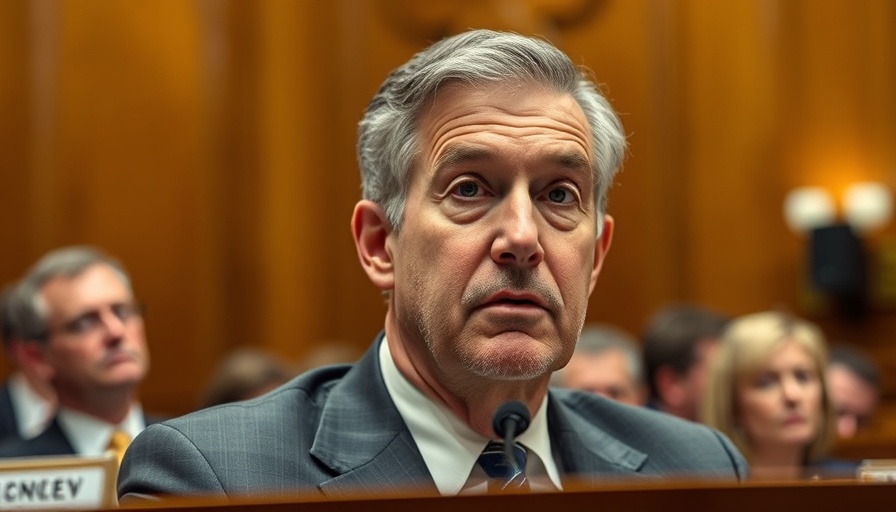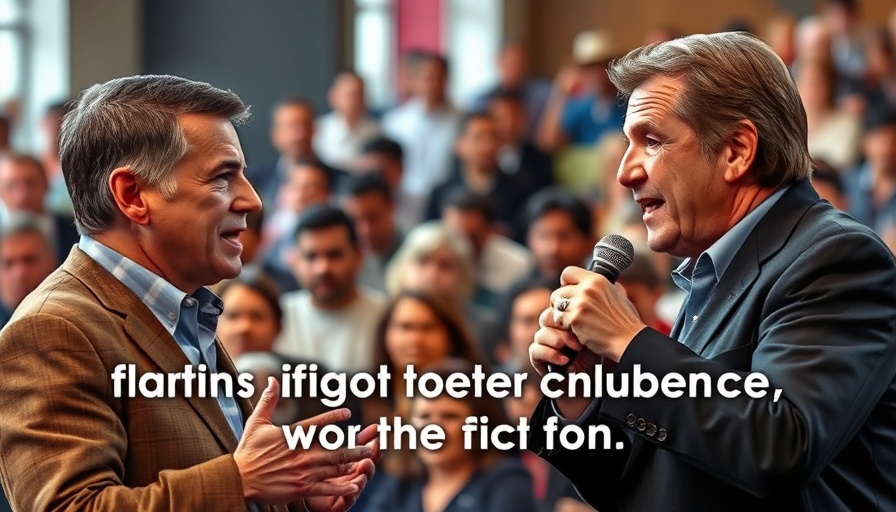
The Erosion of Speech: How European Laws Are Shaping American Discourse
In a recent hearing led by Chairman Jordan, significant concerns emerged regarding the wide-reaching implications of Europe's digital regulations on free speech within the U.S. These regulations, ostensibly designed to manage disinformation, are seen by many as a direct encroachment on American rights, stifling not only the discourse surrounding critical elections but also the very foundation of democracy.
In 'Chairman Jordan Opening Statement at Hearing on Europe’s Threat to American Speech and Innovation,' the discussion dives into the implications of European regulations on our fundamental rights. We’re breaking down its key insights while providing our perspective.
Understanding the Digital Services Act
Chairman Jordan pointed out that Terry Bratton, a European commissioner, sent a warning letter to Elon Musk regarding a planned conversation on X, previously known as Twitter, about an upcoming presidential election. This correspondence symbolizes a profound irony: an EU official intervening in American affairs, a practice that raises eyebrows when considering our country's commitment to freedom of speech. This act not only threatens the independence of American corporations but also attempts to shift how we engage in political discourse.
The Chilling Effect of Censorship
At the heart of the hearing is a critical assertion: censorship laws in Europe, like the Digital Services Act (DSA), threaten free speech globally. The DSA obliges platforms to alter their terms of service in a way that often leads to excessive moderation, where American voices face restrictions not based on American principles but on foreign legislation. The chilling effect of such measures cannot be overstated; it diminishes the capacity for Americans to express themselves freely, prompting significant concerns over American democracy's robustness.
Historical Context: Government Interference with Free Speech
Historically, instances wherein governments engage in censorship are underlined by the worry of suppressing dissenting voices. Chairman Jordan referenced the disbanded Disinformation Governance Board—a product of government overreach aiming to determine what constitutes misinformation. The very existence of such entities raises alarms about the boundaries of free speech in America. In our modern era, where misinformation is prevalent, the answer lies not in censorship but in open, honest dialogue.
The Broader Implications of European Regulations
The implications of the European Union's actions extend beyond mere speech restrictions—they threaten the innovation landscape of American technology businesses. By imposing burdensome regulations through the DSA and other laws, European officials inadvertently support a rise in foreign competition while American companies struggle under the weight of compliance. As the Chairman pointed out, this has broader ramifications not just for businesses but for the very economy of America; stifled innovation can lead to diminished job growth and hinder our economic vitality.
Call for Awareness and Action
As the digital landscape evolves, it becomes essential for Americans to stay informed and vigilant against such regulatory threats. For conservatives, understanding the impact of these foreign laws isn’t merely a political issue; it’s a fight for fundamental rights that affect families, businesses, and the economy at large.
We must advocate for policies that prioritize free speech and innovation to ensure that democracy remains vibrant and intact. Join us in standing against censorship—your voice matters.
 Add Row
Add Row  Add
Add 




Write A Comment